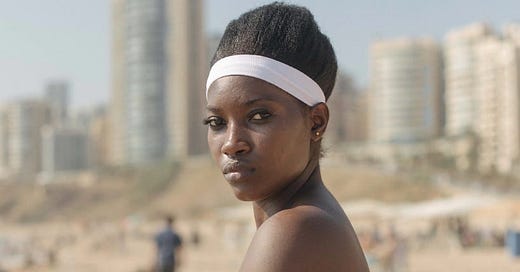Aline Deschamps: I Am Not Your Animal
Photojournalist Aline Deschamps, originally from Paris, gives a voice to communities in Lebanon where she is currently based, shining a light on the invisible
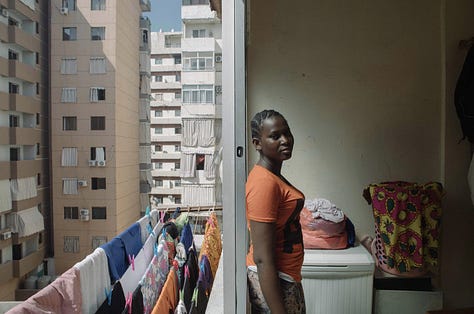
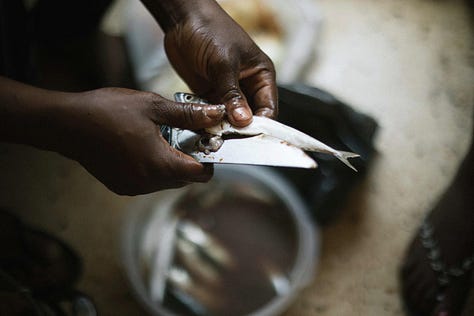

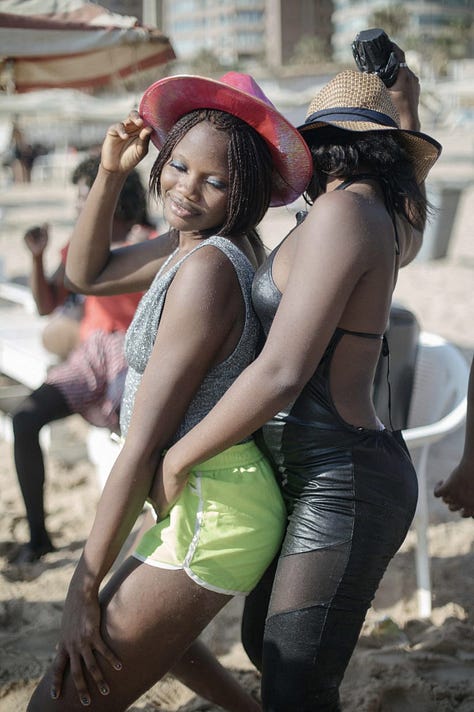
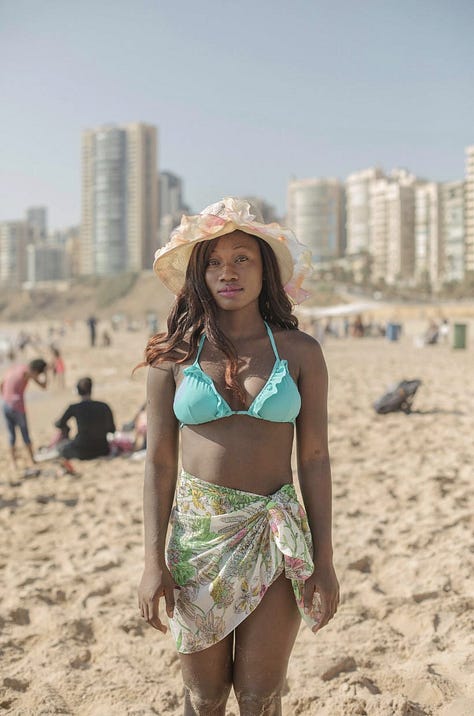
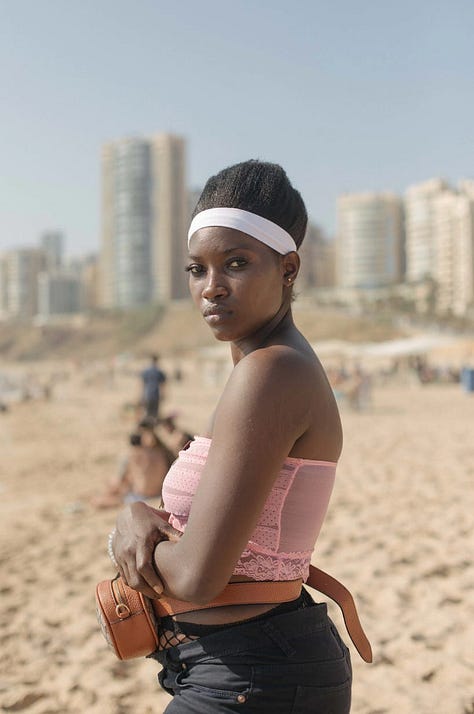
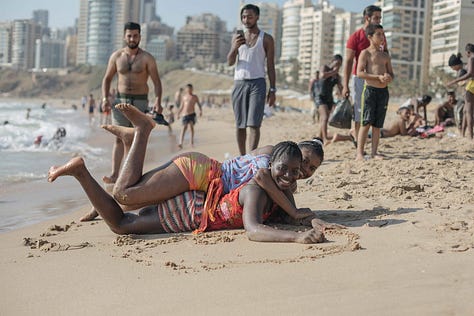
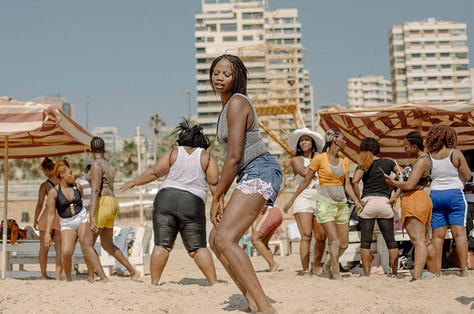
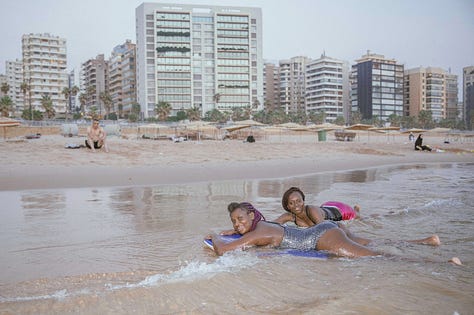
Surprisingly modest, hugely talented and deeply committed, Aline Deschamps is a photojournalist shining a light on the invisible. She’s come a long way since I met her at a street art project in Djerba eight years ago. Her series “I am not your animal” about women slave workers from Sierra Leone in Beirut received high acclaim and won her a Canon ambassadorship and the Lagardère prize at the end of 2022. Aline and I caught up a couple of weeks ago about everything from love to human rights.
What’s a half-French, half-Thai woman doing in Beirut?
Long story! I came for a holiday and stayed for love, let’s say. A blessing really, because I feel at home here, which is my base. I’m back in Paris where I grew up quite often though but I am looking forward to the day I can go back to Thailand and settle there. I love Paris, but I’ve never been a fan of winters, so Beirut and Thailand are great for me!
Would you say you’re Parisian?
I am, but having lived in Australia, South America, Southeast Asia, and now Lebanon, home has become wherever I happen to be living.
Tell us a bit about what you do
I’m a photojournalist for various papers and magazines, a recent Canon ambassador and Lagardère prize-winner. I take a very personal approach to my work, really always trying to show aspects of a community or a place that hasn’t been explored a lot or that is unexpected. I guess I try to unmake the preconceptions you could have about a certain place or people by showing a side that’s unknown. For instance, in my series “I am not your animal,” I try to bring the kafala system in Lebanon to light, which in a lot of cases is akin to modern-day slavery. I got to know a group of 15 women from Sierra Leone over the course of a year during the pandemic and the series I shot began in their homes to them at the beach, showing an intimate moment of joy, happiness and liberation. It showed their bodies, free from their chores and uniforms… bodies that are meant to dance, swim, roll around in the sand, bodies that are meant to be free, enjoy the sunshine on their skin… not beaten, abused, looked down upon, enslaved.
Why do you think this project was so successful?
I think that although the kafala system in Lebanon is widely spread and is common knowledge, and also forms a pillar of the country’s economy, these women had never been shown dancing, being free, to this extent… shown outside of their condition. We developed an important relationship. I wanted to help them go back home too; we set up a fundraiser and several other associations helped too. What we realised though is that while this group of women were going home, another was arriving, the women blind to what awaited, the truths behind promises of work and wealth… that was really hard. These women are lured by agencies from the countries to Lebanon to work. When many get here, their passports are confiscated, they aren’t paid and are treated like a sub-human being, abused, harassed, starved, beaten, forced to sleep outside…
What else have you worked on?
I’ve worked on a few series before, always wanting to show the unexpected. I’ve just got back from Tripoli in the north of Lebanon, which was a cultural city on the rise where Oscar Niemeyer even planned a show but today more than 80% of its population are living in poverty… I wanted to show what this city is like, meet the locals, and hear about what happened. I’m also working on a story about Beirut’s biker clan and how it transcends all religions (unusually so here in Lebanon, which is very segregated) - the only prerequisite is that you have to own a Harley!
What does it mean to be a Canon ambassador and Lagardère prize-winner?
Obviously, it’s a huge, huge privilege for me. I mean Canon approached me before I even knew I was really a photographer. And the Lagardère prize money will support my next big project, which is to follow the women I met in Sierra Leone as they pursue their next immigration journey. Because the thing is, when they went home, a lot of them were forced to live in shame - coming home without money was difficult for a lot of families to understand. So while some have created support groups and networks allowing them to learn new skills and spread awareness about the kafala system in Lebanon, many want to leave again.
How difficult is it to become a reporter?
It’s not always easy, but I feel lucky. I came to the trade recently, in 2019, at a time when I was unsure of what my next step was. I knew I was interested in photography but I lacked the confidence to really go for it. Getting to know the women from “I am not your animal” and shooting them, confirmed my commitment to the work and wanting to highlight these invisible aspects of people and places. In fact, I was criticised by more established photographers for getting so closely involved with my “subjects”… but I just wonder how you can meet people for such an intimate story and then leave without trying to help. That, I find more questionable than trying to help.
Places you go to for inspiration in Paris?
Paris is a place I’ll always come back to because I love it, especially in summer. I love coming back to see family and friends in the 13th arrondissement where I grew up, which was close to Chinatown. In fact, maybe it was my school days that created this pull towards multiculturalism - we were 30 students from 20 different nationalities in my class. No wonder I’m always on the move! I also love to just walk around the 19th district, the Mouzaïa area with beautiful townhouses hidden in flowery lanes and to the Butte Chaumont park, which make me feel like a tourist in my own city because I feel I’m always discovering something new in this part of Paris that is far from the clichés.
What’s next?
It’ll be my long project with the women I met in Lebanon, on their next journey to the next Eldorado, if there is one, and delving into the unknown of the immigration route from there.
You can find Aline and see more of her work on Instagram.


